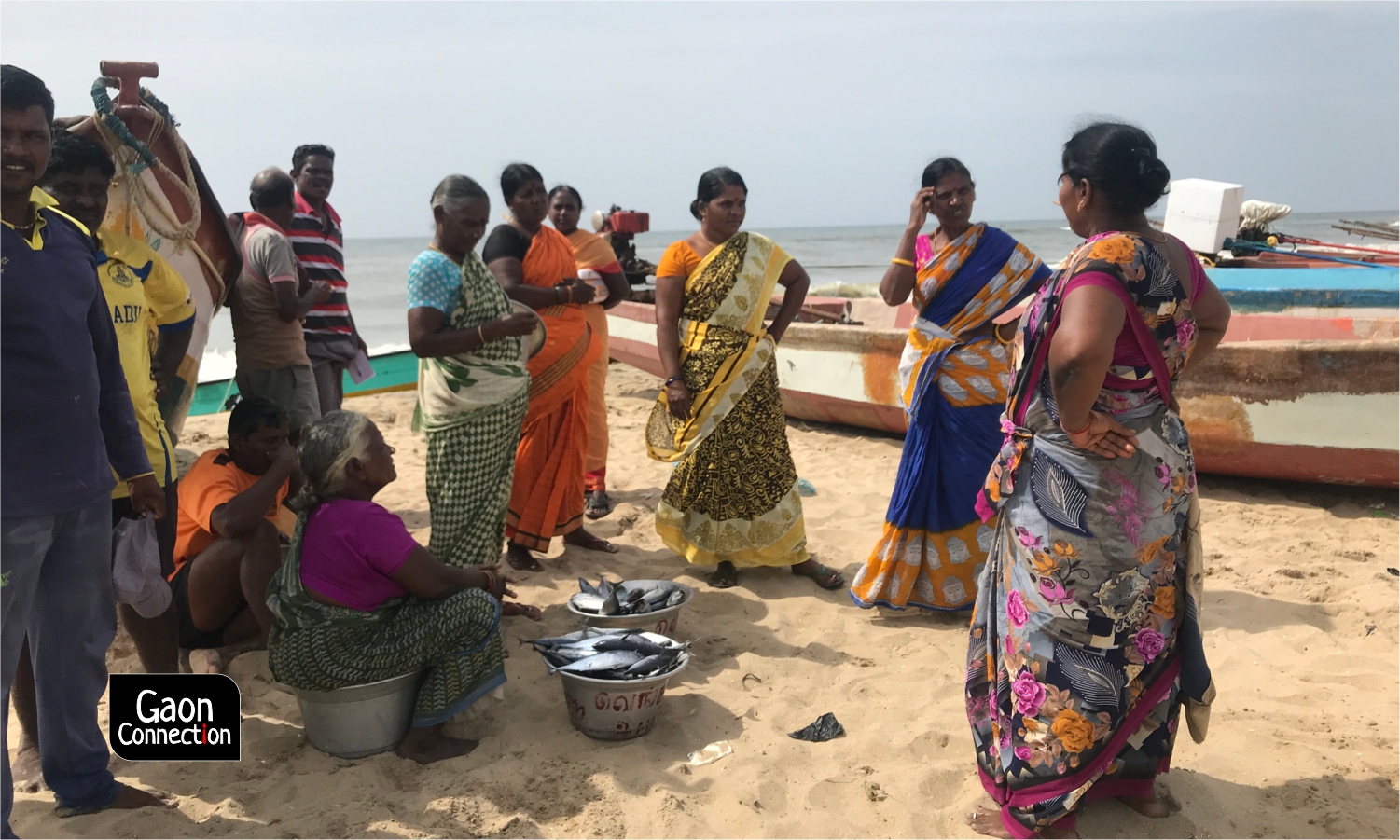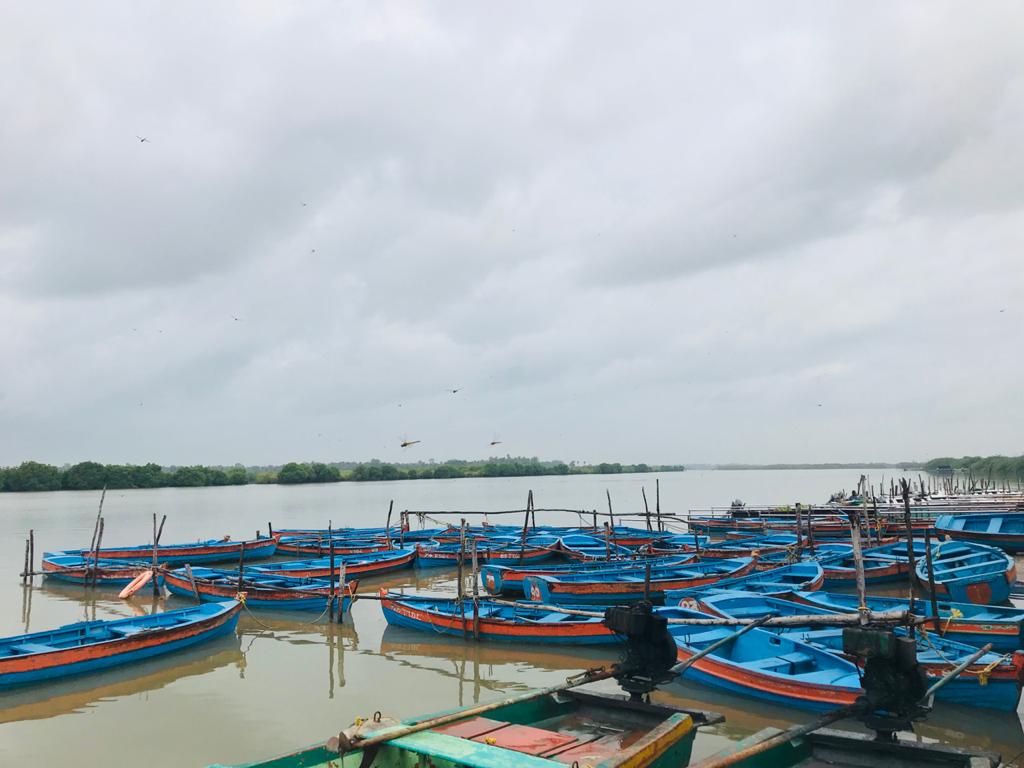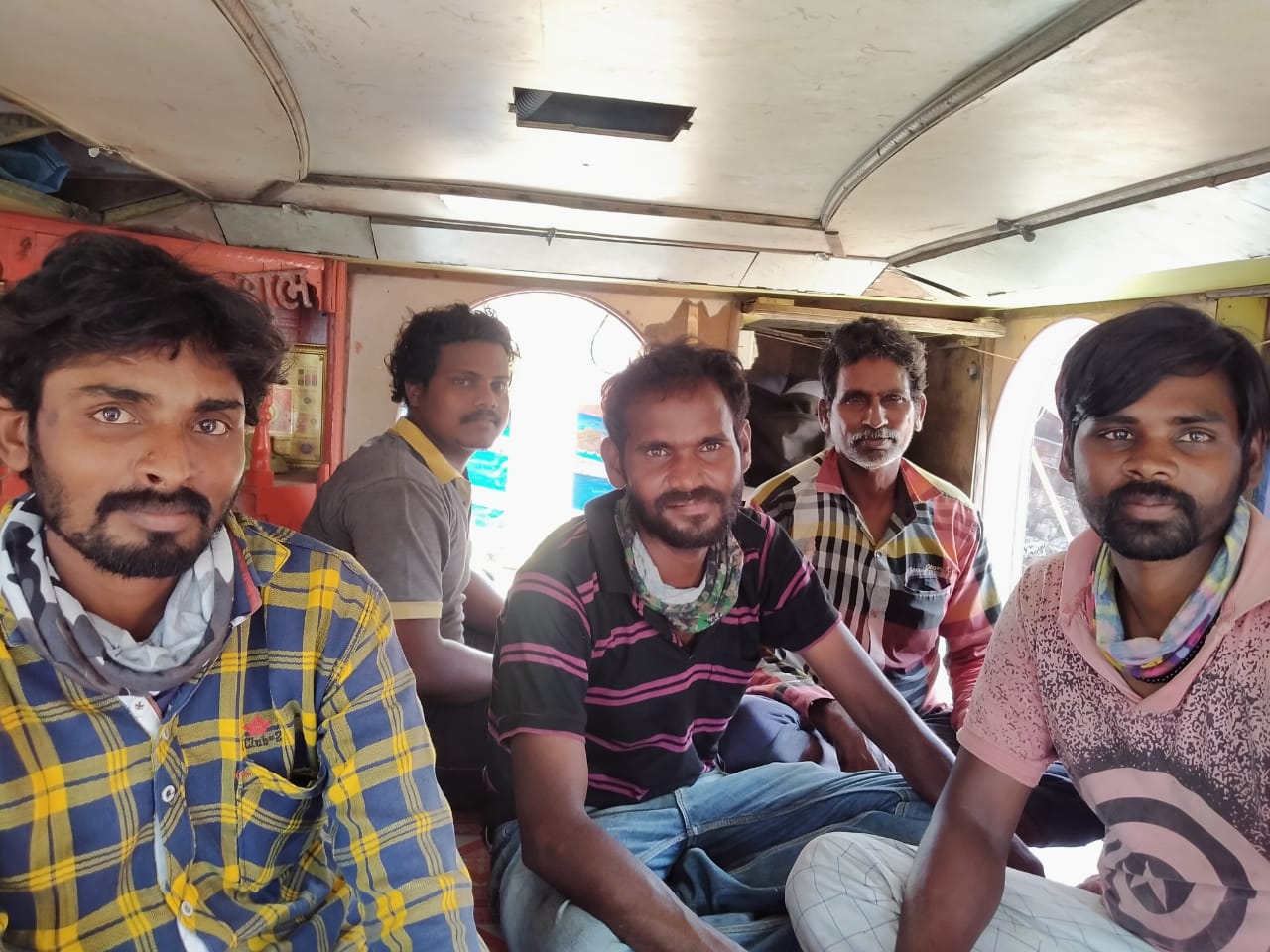Rising fuel prices, poorly drafted fisheries policy, lockdown and no relief from the government — traditional fishers never had this bad
The worries of the small-scale fishers are not limited to the loss of income due to the COVID19 lockdown alone. The Draft National Fisheries Policy 2020, if adopted, may hit them further. Fishers have also planned a day-long demonstration against the rising fuel prices.


Fishing community across the country has suffered huge losses due to the lockdown. Photo: Nidhi Jamwal
There is no end to the woes of the fishing community — at least 16 million fishers and fishworkers — in India. When Prime Minister Narendra Modi announced the nationwide lockdown to control the spread of coronavirus disease (COVID19), fishers lost tonnes of fish catch worth several lakh rupees.
Because of the lockdown, fishing activities remained suspended for over two months, making it difficult for the fishers and fishworkers to feed their families. Some migrant fisher workers even died while stranded in their boats at the harbour.
Just when the lockdown was being eased in a phased manner, the 61-day annual fishing ban came into force, later reduced to 47 days. “In spite of repeated requests to the central government for a special relief package for the fishers, nothing has been offered to the traditional fishers who are in a pitiable condition,” T Peter, general secretary of the National Fishworkers’ Forum, a federation of state-level trade unions in India, told Gaon Connection.
To make the matters worse, the fuel prices of kerosene, petrol and diesel are on the rise in the country, creating further crises in the fisheries sector. “As the catch in the territorial waters [up to 12 nautical miles from the coastline] has been less, the small-scale fishworkers and others are forced to enter in the EEZ [Exclusive Economic Zone extending up to 200 nautical miles] waters and the amount of fuel needed has considerably increased,” he said.
Thus, the fishers forum is demanding the fuel allotted to the fishworkers should be exempted from the excise duty on fuel, especially on diesel, by the respective state governments as well as the Union Ministry of Petroleum.

To press for this demand, the National Fishworkers’ Forum has called for a one-day demonstration on July 24, following all the COVID19 protocols, in all the coastal states in the country, informed Peter. The forum is also preparing a detailed draft on this matter to be submitted to both the Centre and the state governments.
The importance of the country’s fisheries sector can be gauged from the fact that it one of the major contributors of foreign exchange earnings with India being one of the leading seafood exporting nations in the world. The marine exports stand at about 5 per cent of total exports of India and constitute 19.23 per cent of agri-exports (2017-18).
As per the 2018 estimate, the total fisheries potential in the country has been estimated at 22.31 million tons, of which the marine fisheries potential is 5.31 million tons and the inland fisheries at 17 million tons.
Multiple drafts, little action
Apart from the rising fuel prices, there is another front on which the fishers and fishworkers are fighting. The draft National Fisheries Policy, 2020 has recently been uploaded on the website of National Fisheries Development Board under the Union Ministry of Fisheries, Animal Husbandry & Dairying, amid the COVID19 pandemic, inviting comments from the stakeholders. The forum has termed the draft policy “neither in favour of the fishing community nor for protecting the oceans and the coast”.
“Since 2016, we have been annually sending our comments and objections on the draft fisheries policy. Every year a new draft comes up and we send comments, only to have another draft policy the next year,” Kiran Koli, secretary of Maharashtra Machhimar Kriti Samiti told Gaon Connection.
“Last year, there was a draft fisheries policy on which a meeting was organised in Maharashtra. We gave several important inputs, but those are missing in the new draft uploaded on the homepage of the National Fisheries Development Board,” said Koli. He also protested against the rush the ministry has shown by inviting comments on the draft while the country is fighting the COVID19 pandemic.
One of the demands of the Maharashtra Machhimar Kriti Samiti is to extend the territorial waters, which come under the control of the state government, from the existing 12 nautical miles to 50-70 nautical miles. “A large number of illegal fishing activities, such as purse seine fishing and fishing using LED lights, are done along Maharashtra’s coast. When we complain to the state government, we are told beyond 12 nautical miles comes under the Centre’s jurisdiction,” said Koli.
Traditional fishers are also demanding stricter action against illegal fishing and confiscating boats of big players if caught second time involved in illegal fishing practices. The fisheries bill must also have a special provision for the protection of traditional fishers in the country, who are already facing a tough time due to trawling and the climate change, he added.
Fishers’ representatives complain the draft policy does not acknowledge the real role of the small-scale fishers in the fishing sector and the need to protect them. “Where is the concern for the women fishers, who are equally important in fishing-related activities, such as fish vending and fish drying and sale? The draft pays lip service to them,” Debasis Paul of Democratic Traditional Fisher’s and Fishworkers Forum, Andhra Pradesh told Gaon Connection.
He also lashed out at the rising fuel prices and its impact on the fishing community. “Fuel subsidy is offered only in the marine fisheries sector. But, we have a large number of small-scale fishers in inland fisheries, who fish in the rivers, ponds, reservoirs. What about them?” he said.
The draft policy notes the importance of the inland fisheries. In 2018-19, the total fish production in the country was 13.42 million tonnes, of which 9.71 million tonnes was contributed by the inland fisheries sector. The inland resources in the country include rivers and canals (1.95 lakh km), floodplain lakes (8.12 lakh hectares), ponds and tanks (24.1 lakh hectares), reservoirs (31.5 lakh hectares), brackish water (12.4 lakh hectares), saline/alkaline affected areas (12 lakh hectares), etc.
“The unutilised and underutilised vast and varied inland resources offer great opportunities for livelihood development and ushering economic prosperity,” reads the recent draft fisheries policy.
Meanwhile, on the issue of fuel price hike, Koli pointed out how fishers in Maharashtra haven’t received their share of diesel fuel subsidy for the last four years or so. To top it all, the state fishing community has suffered huge losses due to the lockdown.

As per the draft policy, the Indian government wants to promote island tourism, ecotourism or fisheries tourism. The fishing community is not averse to the idea but, wants to be a part of such projects. “Rather than giving our coast to big private parties, community-based ecotourism should be encouraged and the fishing community must be made a part of the entire project,” said Koli.
But, Paul is worried about the government’s plan to set up new ports and harbours in Andhra Pradesh. “On top of the existing ports, the government plans to build 17 new ports and harbours in the state. We have a coastline of 974 kilometres. And at this rate, we will have a port every 30 kilometres or so,” he said.
“We fear there will be no fishers left along the country’s coastline in the future. Fishers will be forced to turn into invisible migrant labourers,” he added.
The National Fishworkers’ Forum has decided to hold discussions in all the coastal states with the fishing communities on the draft policy. It has urged the ministry not to go ahead with the draft policy without consultations with all the stakeholder. It has also demanded the draft policy be translated into state languages so that fishers can read and send their comments.

